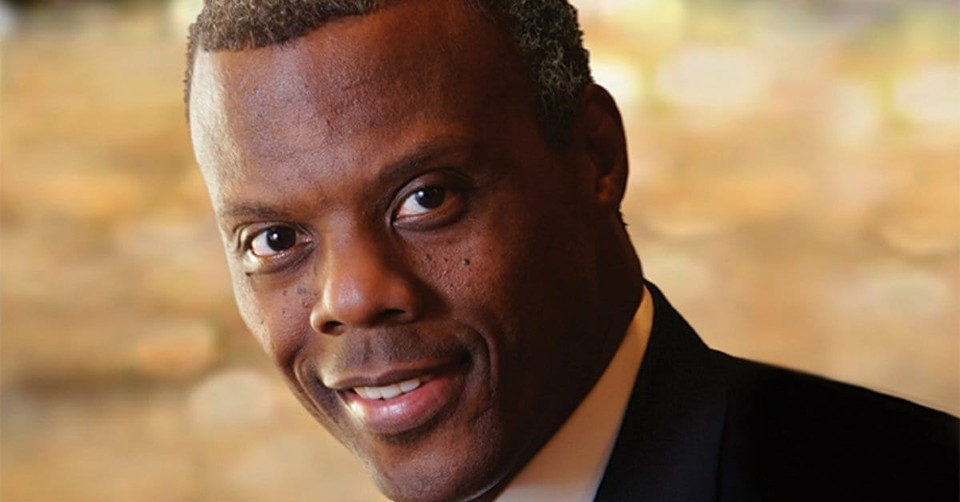Unlearn and Rethink: Three Ways to Overcome Narrow-mindedness

Editor's Note: the following is an excerpt from Dig Deep : 7 Truths to Finding the Strength Within used with permission from Regnery Faith, Washington, D.C.
They’re some of the rarest things on earth. Only five of them have ever been found. If you were to come across one, it would fetch a price per ounce ten times greater than the going rate for gold. They’re freshly fallen “Martian meteorites,” chunks of the planet Mars that got blasted into space through some sort of collision and eventually landed on earth as fiery meteorites.
Even rarer than a Martian meteorite is the chemical element astatine. If you gathered up all the astatine on the earth, it would barely fill a teaspoon.
The rarest feat in professional team sports is probably the “three-peat,” winning the league championship three years running. The last team to pull it off was the Los Angeles Lakers with its NBA championships in 2000, 2001,and 2002. There has never been a three-peat in the NFL.
Because of salary caps and free agency, it may never happen in any major sport again.
But rarer than a Martian meteorite, astatine, or a major league three-peat is an adult who’s willing to change his mind about something of importance. I’m talking about a person willing to look at new evidence or to consider a new vantage point rather than reflexively defending what he has always believed to be true.
It goes without saying that we should be principled, but we also must understand the difference between principle and arrogance. I have seen elected officials dig in on half-baked positions that fit the narrative they’ve adopted, refusing to consider a better idea when one emerges. That’s not principle, that’s arrogance. Blacks and whites, liberals and conservatives, atheists and people of faith—like belligerent panelists on a contentious cable news show—are all talking past one another, more intent on scoring points than on connecting, shouting to be heard but never listening, seeking validation and vindication rather than truth and light.
I have identified three causes of this narrow-mindedness. Let’s look at them one by one, and in the process, hopefully, we’ll see what we can do about it.
1. CONFIRMATION BIAS
Confirmation bias is as stated by Scott Plous in his book, The Psychology of Judgment and Decision Making, “the tendency to search for, interpret, favor, and recall information in a way that confirms one’s beliefs.” It’s sometimes called “my-side bias” because it reassures us that our side of a question is right—even when we’re wrong. Confirmation bias is a special lens for our eyes and a filter for our memory.
The first and most important key to combating confirmation bias within your own brain is simply recognizing that it exists.
2. COCOONING
It’s never been easier to keep ourselves in a cozy, comfortable, insulated little bubble in which everyone thinks as we do and our views are constantly validated than now when we can subscribe to and ingest only those information sources we prefer. It might be counterintuitive, but the more information streams we have acquired, the less ideologically diverse our daily lives have become.
Given the sputtering rage any contradictory viewpoint seems to provoke in many people these days, it seems that life in the cocoon has conditioned them to believe they should never have to encounter an opinion that doesn’t align with their own. This is no way to expand our minds and hearts.
3. NEW THOUGHTS HURT
When we’re young, our minds are pretty malleable. This is why it’s so much easier for children to learn new languages than it is for adults. It may also be why a majority of people who embrace Christ as Lord and Savior do so before the age of eighteen. Somewhere around the ages of twenty-two to twenty-four, our ideas and our world views set and harden. From that point, we have to work and be intentional if we’re going to learn anything new or embrace a new way of thinking. It’s not impossible, just painful—literally.
Whether as individuals, church communities, business enterprises, or a culture, it is indeed crazy to expect things to get better if our actions and processes never change. If you want “better,” you have to have the capacity to learn, to change the way you think about certain things, and to press through the pain of replacing some of your long-held beliefs. In other words, you have to know how to unlearn and rethink.
J.C. Watts: After quarterbacking the University of Oklahoma Sooners to two Orange Bowl championships and starring in the Canadian Football League, he became the first African American elected to statewide office in Oklahoma and later served four terms in the U.S. Congress, rising to the chairmanship of the Republican Conference and authoring the legislation for President George W. Bush’s faith-based initiative.
*Published 10/17/2016
Originally published April 18, 2017.




